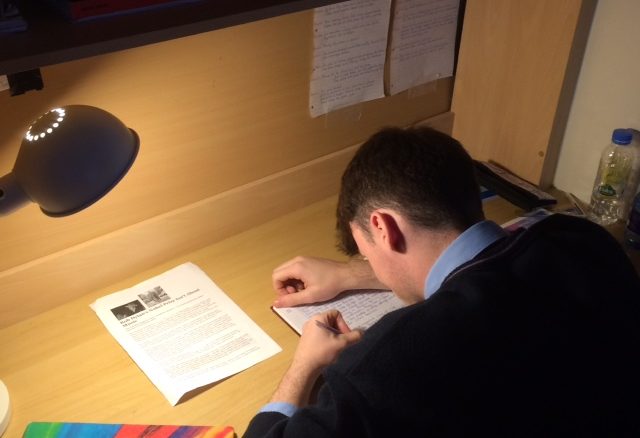
[dropcap]This[/dropcap] year almost 10,000 exam papers were appealed to the State Examinations Commission by Leaving Certificate students after receiving their initial grade.
A fee of €40 is required to get an exam paper re-checked. This initial fee is refunded if a higher grade is awarded following the appeal. However, with only 1,698 upgrades given out of almost 10,000 exam paper appeals, perhaps education method for the Leaving Certificate needs to be changed.
Over the past few years we’ve seen a change in the way that the Junior Certificate is taught and graded. The traditional Junior Certificate has been replaced with a new concept called the Junior Cycle Student Award (JCSA) which began in 2014.
The JCSA aims to focus on new subjects and short courses with a strong focus on literacy, numeracy and key skills for students. In April 2015, former Minister for Education and Skills Jan O’Sullivan described the five abiding principles in the new JCSA system. She pinpointed five main ideas which included the need to focus on a wide range of learning and to put less emphasis on one terminal exam. She also mentioned an assessment of student’s knowledge and the need to stress the importance of classroom-based assessment.
The idea behind this new system of teaching and grading in the JCSA is to offer well-rounded education in different subjects while acknowledging the fact that there is more than just one way of learning. The focus will no longer solely be striving towards a high grade in one overall end exam. Instead it will aim towards having a good understanding of different topics through different methods of teaching and learning.
New short courses will be available to students in the JCSA. Students must complete one hundred hours of learning for two short courses to match the level of one single subject. The aim of short courses is not to distract from traditional school subjects but to provide a wider range of options for students in the junior cycle.
The new implementation of the JCSA reflects the structure of learning at third level in some ways. The strong focus on diverse ways of learning and approaching different topics is also used in colleges and universities worldwide.
DCU prides itself on its identity as a young, dynamic and ambitious university with an aim to transform lives and societies through education, research and innovation. The combination of technology, group-work, self-dependent work and integrated training (INTRA) at DCU ensures that students learn subjects in many ways, not just through a textbook.
The student’s response to this method of learning is evident through the high number of graduates who have progressed into careers after completing their degree here. DCU alone has over 55,000 graduates worldwide who have benefited from a diverse method of learning at third level education.
Universities prepare young people for life in the workplace, where in general it’s necessary to be consistently delivering your best. There is rarely room for error. So, surely it would make sense to adapt a similar method of teaching and learning in the earlier stage of education.
Continuous assessment is a prime example of grading a student’s contribution and work in a way that is realistic to everyday working life.
The traditional methods of ‘learning’ through textbooks, writing essays and completing annual exams are not always going to be enough. Especially with new developments and major advances in technology in recent years. Great advances in secondary school education could happen if the attitude of students keeping up with their teachers changed. Instead the education system should adapt to the young generations preferred and most beneficial way of learning.
Every year thousands of secondary school students sit the leaving cert exams in hope of being offered a place in a university or college. Preparation for these highly anticipated and dreaded exams begins in 5th year and, if the end goal is a selection of high grades, the process involves a consistent bulk of memorising facts and figures right up until the minute you sit down in the large, echoing hall and the examiner says “go”.
The pressure and anticipation of these terminal exams often proves too much for students, resulting in panic attacks, high levels of stress and anxiety. Is there a need for this structure in second level education? Surely not.
The Leaving Certificate, from many different angles, proves itself to be nothing short of a memory test. Is it fair to test a student’s knowledge of a certain topic by judging who can memorise the most and then pack it into an A4 booklet in 90 minutes? Assuredly a student’s individual participation, work ethic and dedication throughout the entire academic year in varied subjects proves more than what is written on a few sheets of paper.
Is it fair to apply such pressure and importance upon one exam, one day or one hour?
In order to introduce a permanent, sustainable and engaging education system, the different ways that different individual learn must be noted. Not every single student will adapt to the traditional methods of learning that are still in place for the Leaving Certificate. As Albert Einstein once said, “Everyone is a genius. But if you judge a fish by its ability to climb a tree, it will live its whole life believing that it is stupid.”
Shirley Donlon



Leave a Reply